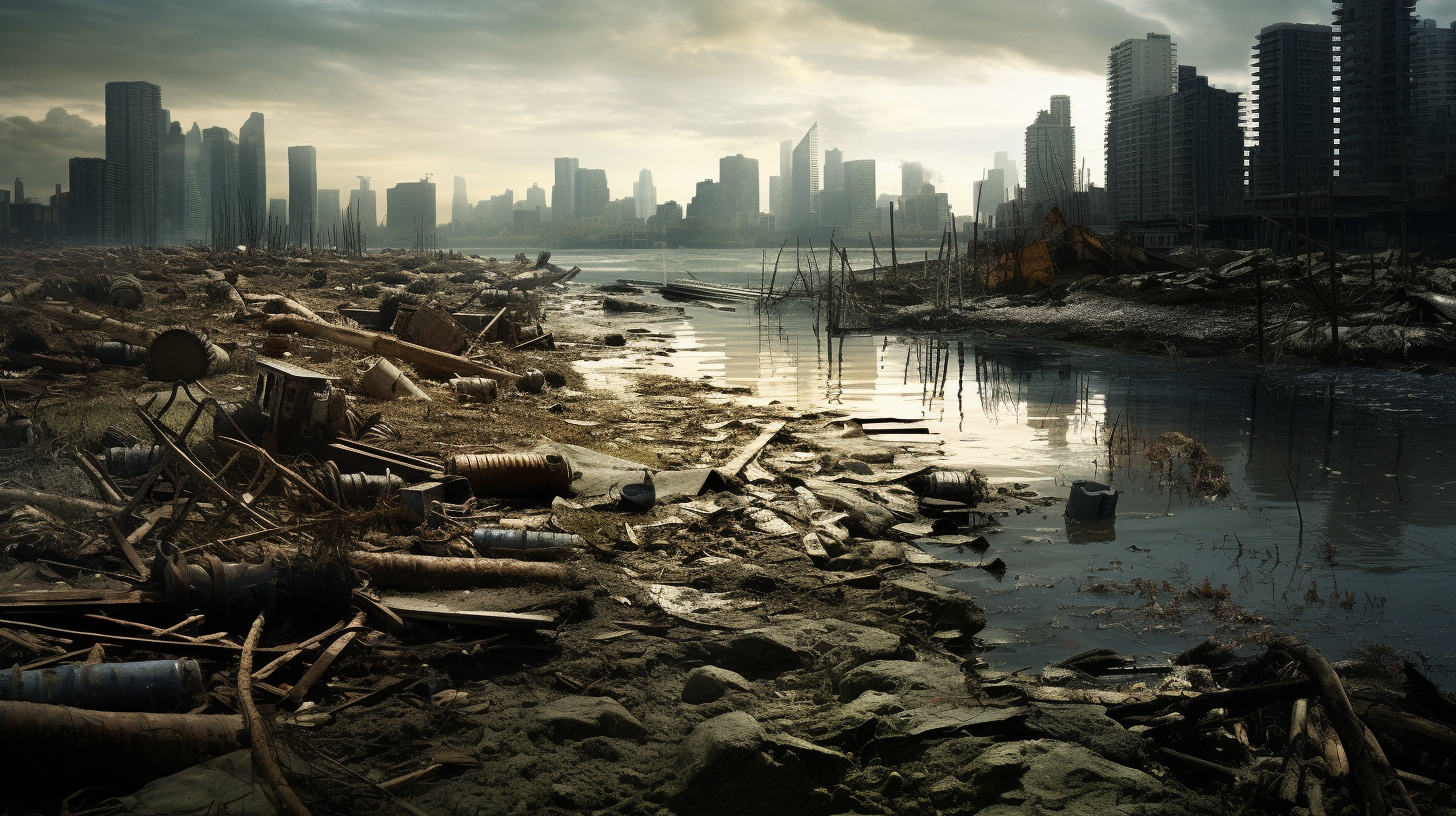The relentless onslaught of the tide continues unabated, a slow-moving yet unstoppable force that has taken prisoner the land we once called home. In this deep dive into the sunken heart of our civilization’s remnants, we examine the melancholia of coastal communities watching their heritage become one with the sea. Adaptation in our vernacular now synonymous with abandonment, as each advancing meter of brine forces families to relinquish the past, to unfurl the white flag to the unyielding Rising Tides of Despair.
In the dim twilight of a drowned world, where skyscrapers play hide and seek with the clouds and rooftops serve as dots for the new horizon, life endures—albeit, in a form unrecognizable to our ancestors. Hope is a commodity as scarce as dry land, and here, resilience is not the fire-forged will to overcome, but rather the grim determination to exist within the aquatic oblivion.
The narrative weaves through the abandoned echoes of the boardwalks and sea walls, once icons of human triumph over nature, now forgotten vestiges of a failed battle. Individuals morph into nomadic shadows, pivoting lifestyles towards the harsh realities of a post-diluvian society. Aspirations are washed away faster than the soil under our feet; new generations born into the swell will know nothing of the verdant fields and bustling market squares.
Amidst this sodden exile, communities form in the most unexpected of edens. Rooftops become gardens; desolate pinnacles of high-rises turn to sanctuaries where beleaguered souls carve out an existence from the wreckage of their forebears. Yet, the omnipresent chorus of the tide sings a lullaby that threatens to lull them into the sea’s cold embrace. The settlements are ephemeral, transient—the next storm, the next wave eroding more than just the land, but the very essence of humanity.
Interviews with the displaced paint a mosaic of tales, each tile a sliver of shattered dreams, of memorabilia turned driftwood. Quotations from these lost voices echo the hollow comfort they seek in togetherness. “It’s either adapt or die,” says a former fisherman, his eyes staring into the abyss that claimed his livelihood. “But sometimes, it feels like we’re doing both, trying to outpace a fate that’s inevitable.”
The dystopian future we feared is upon us, a chiaroscuro landscape where darkness consumes the light in incremental, but certain, bites. Technological advancement, touted as the ark of salvation, is but a mirage; inundated, short-circuited, a drowning man’s final, desperate grasp at salvation.
This exposé concludes not with solutions, for the realm of choices has long been submerged beneath the encroaching waves. Rather, it leaves readers to ponder the human cost of climate inertia, questioning whether the psyche can ever truly reconcile with a world lost to the depths—an Atlantis of our own making, where Sirens sing dirges of a consequence to which we never listened closely enough.
